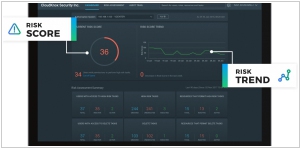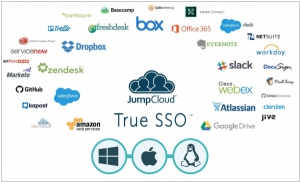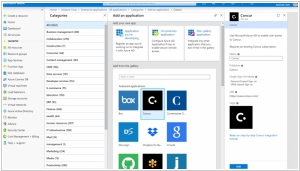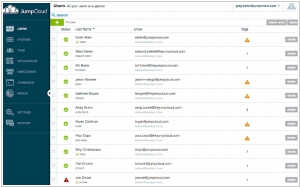Azure Active Directory vs JumpCloud
August 06, 2023 | Author: Michael Stromann
Azure Active Directory (Azure AD) and JumpCloud are two popular directory service solutions, each catering to different types of organizations. Azure AD, developed by Microsoft, is a cloud-based identity and access management (IAM) service designed for organizations deeply integrated with Microsoft's ecosystem. It excels in providing seamless integration with Microsoft applications, including Office 365, and offers features like user authentication, single sign-on (SSO), and device management. Azure AD is best suited for businesses that primarily rely on Microsoft technologies and are looking for a solution to manage identities and access permissions within their Microsoft-centric environment. On the other hand, JumpCloud is a comprehensive cloud directory service that caters to heterogeneous IT environments, supporting a wide range of platforms, applications, and protocols. It provides directory services, SSO, MFA, and system management capabilities across various operating systems and cloud applications. JumpCloud is an excellent choice for organizations seeking a platform that can manage user identities, devices, and access across diverse systems and applications, irrespective of their underlying technology stack.
See also: Top 10 Identity Management platforms
See also: Top 10 Identity Management platforms
Azure Active Directory vs JumpCloud in our news:
2021. Microsoft acquires access management startup CloudKnox

Microsoft has recently completed the acquisition of the IAM (identity and access management) startup, CloudKnox Security. CloudKnox specializes in aiding organizations in implementing the least-privilege principles to mitigate risks and prevent security breaches. By integrating CloudKnox's activity-based authorization service, Azure Active Directory customers will gain comprehensive visibility, continuous monitoring, and automated remediation for managing permissions across hybrid and multi-cloud environments. Microsoft has plans to seamlessly integrate CloudKnox with its other cloud security services, such as 365 Defender, Azure Defender, and Azure Sentinel. This acquisition aligns with Microsoft's strategic efforts to bolster its security portfolio, as demonstrated by its recent acquisitions of IoT security startups CyberX and Refirm Labs.
2020. Cloud directory service JumpCloud raises $75M

JumpCloud, the cloud directory service, has successfully raised $75 million in Series E funding. Since its inception in 2013, the company has witnessed significant transformations in the IT landscape. Previously, organizations predominantly relied on Microsoft Active Directory within Windows-centric environments. However, the subsequent rise of diverse operating systems, web applications, cloud computing, and mobile devices necessitated a new approach to directory structures. JumpCloud fills this gap by offering an independent cloud directory platform that securely connects users to their required resources while providing IT teams with complete control over access management. This flexible solution accommodates the evolving needs of modern IT environments, enabling seamless connectivity across heterogeneous systems and ensuring robust security measures.





